A guide to fansub translation This entry was posted by Vale.
People have been telling me for quite a while now to write a guide / tutorial / help (underline as appropriate) about translation. There are already more than one out there, but the more the better.
System requirements
Know Japanese
The obvious first step. If you don’t know Japanese, you may have some difficulties translating from Japanese. I learnt Japanese after coming to Japan, so I don’t know how long it takes to get to a sufficient level in a non-native environment. I spent a year at a language school and half a year in the wild environment of my university, but even after that I had lots of difficulties with translating my first show, even though it was a really simple one. If you’re not so confident with your skills or you have no experience whatsoever, then your first choice should definitely be some simple anime that airs with closed captions (children’s shows or stuff that airs on NHK are usually a safe place to start).
If you don’t know your limits or you feel like challenging a harder series, then don’t be discouraged if you find it extremely difficult. But if you’re like me and hate to give up, then you better find someone who can handle that level of difficulty and is ready to check your translations – otherwise you’ll end up making lots of mistakes you don’t even realize, and you won’t progress because you don’t know what you did wrong.
Internet connection
This part shouldn’t be a problem if you’re reading this. But why do you need the net? First of all, fansubbing is done on the net. Most groups operate on IRC, so it doesn’t hurt if you familiarize yourself with that as well. But other than keeping in touch with the people you work with, the internet is your most important resource. Even if you speak Japanese, there are times when you just have to look up stuff, and at those times the internet is the fastest and easiest choice. There are countless Japanese dictionaries online, and every now and then you might need to check stuff on wikis as well. Let me list a few I use: ALC, Yahoo, goo, Hatena::Keyword, niconico, Wiktionary, Wikipedia and of course Google. I also have an electronic dictionary from my language school days, and it has the insanely useful 広辞苑 (koujien) and 漢語林 (kangorin) dictionaries among others.
In practice
Translate meanings, not words
Most of the time, just translating literally is the best choice, but don’t stick to that. When you try to express the mood or tone of speech, sometimes it’s just necessary to be liberal. Just translating a 貴様! (kisama!) as “You!” during a heated battle in a shonen anime misses the point. Using kisama in that context is clearly rude, so you should make the English rude as well. The same goes for jokes and idioms as well. Literally translating analogies and metaphors often doesn’t work. And even if it does, it’s always a better choice to replace them with actual English idioms of the same meaning. If you translate something and it doesn’t obviously make sense in the context, then you’re probably doing something wrong.
Also don’t forget that Japanese is a very context-dependent language. They can omit parts of the sentence because it’s obvious, to make it sound more mysterious, or just to avoid spoilers, but this isn’t always possible in English. Sometimes you have to add stuff that’s implied in Japanese in the context, but the English watcher would have no idea about it. But if you do add something, be sure not to add more than absolutely necessary. Line length is an issue too, but more importantly: never ever spoil plot details.
Translate
I believe that everything that the average Japanese can understand when watching the show should be understandable to the person who watches with subtitles. Of course it’s not always possible, but you should aim for it. Localization is a slippery ground, because there are times when it’s hard to decide what should be localized and what not. This is especially a problem when it comes to words that have no direct English equivalent. Consider modern words like tsundere or moe, or just pretty much any part of the Japanese cuisine. I’d say it’s a matter of personal preference how much to localize, but of course there are limits. You don’t put “raw fish rice nibbles” for sushi, since everyone, even people totally unfamiliar with the Japanese culture know what that is.
Honorifics and pronouns are also a part of this. Do you call your sister “Onee-san” at home? If you’re not Japanese, I doubt you do. Then translate it. There are many subtle ways of expressing levels of respect in English, and leaving the honorifics in is just the shortcut that lazy translators and editors take when they can’t actually express those levels. Some groups consider leaving in honorifics a part of their profile, and others religiously remove them while failing to actually translate them by expressing the mood in tone and word usage. If you can’t handle it alone, then make it clear to your editor how it’s supposed to sound and what are the implications. The oft-mentioned nuance is at stake here, and that can change the whole atmosphere and even the meaning of what’s being said.
Keep it consistent
Unless something has been proved to be a mistake, then keep your translations consistent throughout the whole script and series. This applies not only to particular recurring expressions in the script, but also the whole style and your own principles. Don’t change your mind midway unless absolutely necessary.
Research
Depending on the anime you might face phrases that you’re not familiar with. This is the time when dictionaries and the internet come the most handy. 2ch and Japanese blogs cover anime, often explaining the references or pointing out lines that are hilarious jokes to a native speaker and undecipherable mysteries to everyone else. If you think that you encountered a reference, look it up and try to turn it into something that makes sense in English. Just don’t overdo it. (Adding your own little jokes and references is all right only as long as it doesn’t effect the atmosphere of the show.) But while I consider it a must to translate references, don’t explain them. The point of references and jokes is that they only mean something to the people who are familiar with it already. If you feel like explaining them, just write your notes somewhere else (like I do on this blog).
If you just can’t catch a word by just listening, then checking out the comments on Himado videos or asking other translators and/or natives can help a lot as well.
Check and recheck
As a principle, always read your script at least once after you’re done. For me this is kind of troublesome, because I usually translate late at night and staying up another half an hour counts a lot when you can only sleep three or so hours. (This is the reason why every now and then there are lines in my translations that the editor misintepreted after I’d gone to sleep.) But when I know that the script for a show is troublesome, then I always check it. Preferably once more after it gets edited so that I can point out stuff to the editor that doesn’t sound right.
Notes
On puns
There are always way more of them than any translator is comfortable with (which would be zero). Some puns are easier to translate, some puns are more difficult, but you should always aim to translate them and keep them funny. If the joke is most important than the meaning, then as a last resort I consider it acceptable to deviate from the original meaning – though that should be avoided whenever possible. Even when it’s not possible, try to keep the meaning as close to the original as possible.
On obscure stuff
Sometimes you’ll face stuff that take insane amounts of research and probably the average Japanese wouldn’t understand them either. In this case it’s your or your group’s preferences that decide whether to translate it. It can be quite challenging and fun, but often totally unnecessary and maybe even distracting.
On translation notes
Just no. I consider translation notes the sign of incompetence. They can be used for trolling, but that’s not my style.
On formatting
How you should format your translation depends on who you work with. I usually translate on a pad, and only note who the speaker is for a line when it would be ambiguous. The translator should pay attention to line length as well, and when you feel the necessity to add possible alternatives to a word, then do so in comments (following Aegisub’s standard, comments are usually denoted with {}’s). Don’t do stuff like “sour/bitter cherry”. Decide.
On criticism
There is more than one way to translate and there will always be people who complain. If you don’t want to die of a heart attack I’d suggest you learn how to ignore them. There are also people who point out valid mistakes. If you don’t want to appear incompetent, I’d suggest you fix your subs. On the other hand, if you think that you are right, it is your job to argue – you can’t expect someone else to stand up for you. (But this is not a tutorial to arguments and rhetoric.)
And most importantly…
Definitely join a group. It makes the whole fansubbing thing nine-thousand-one times more fun.

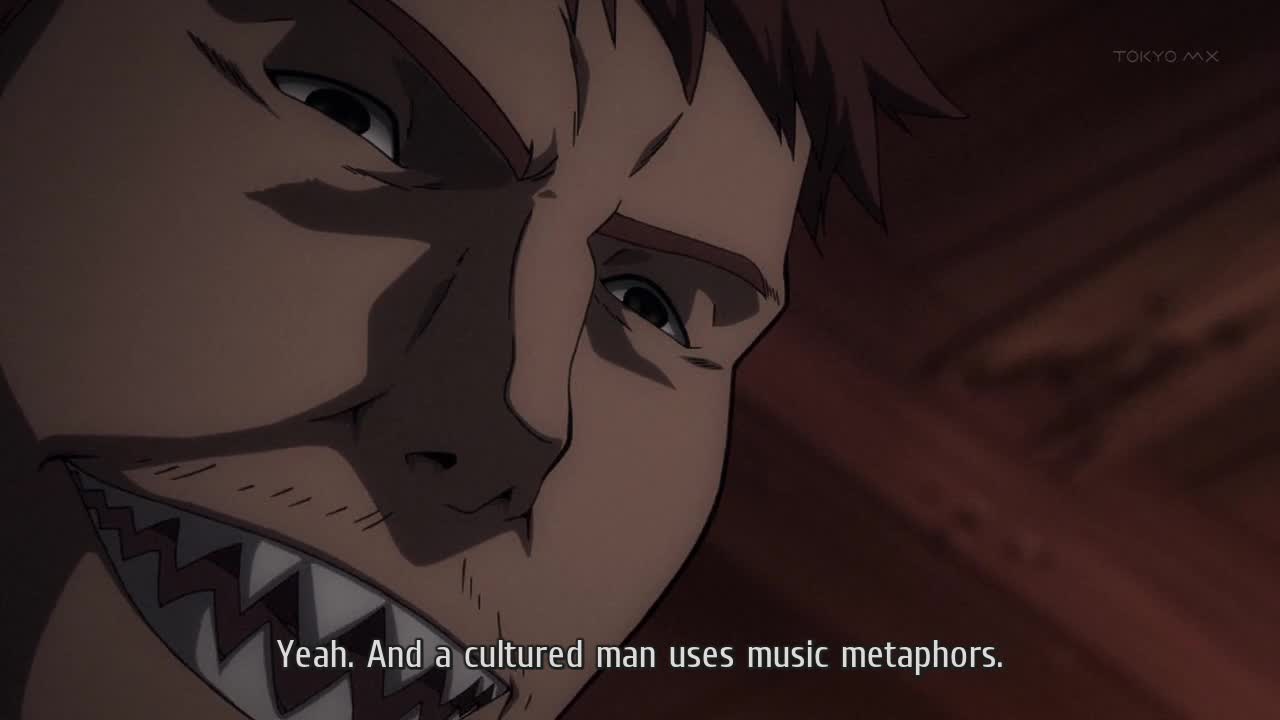
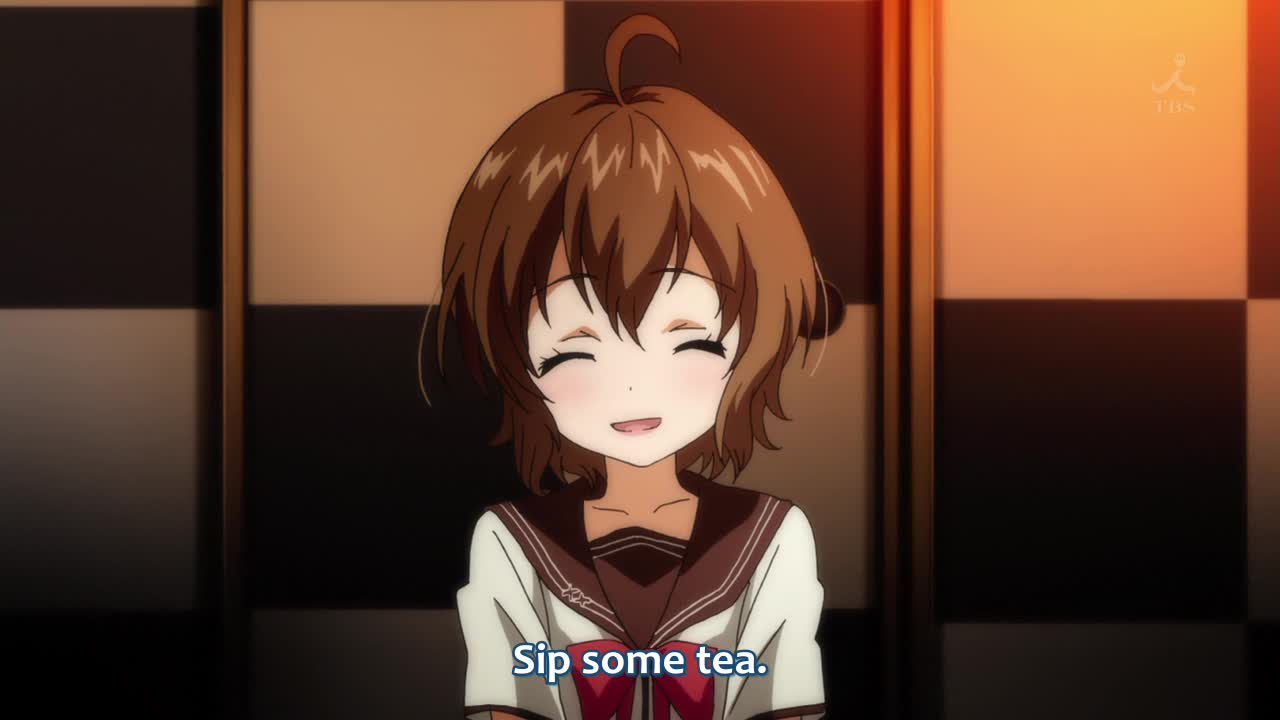
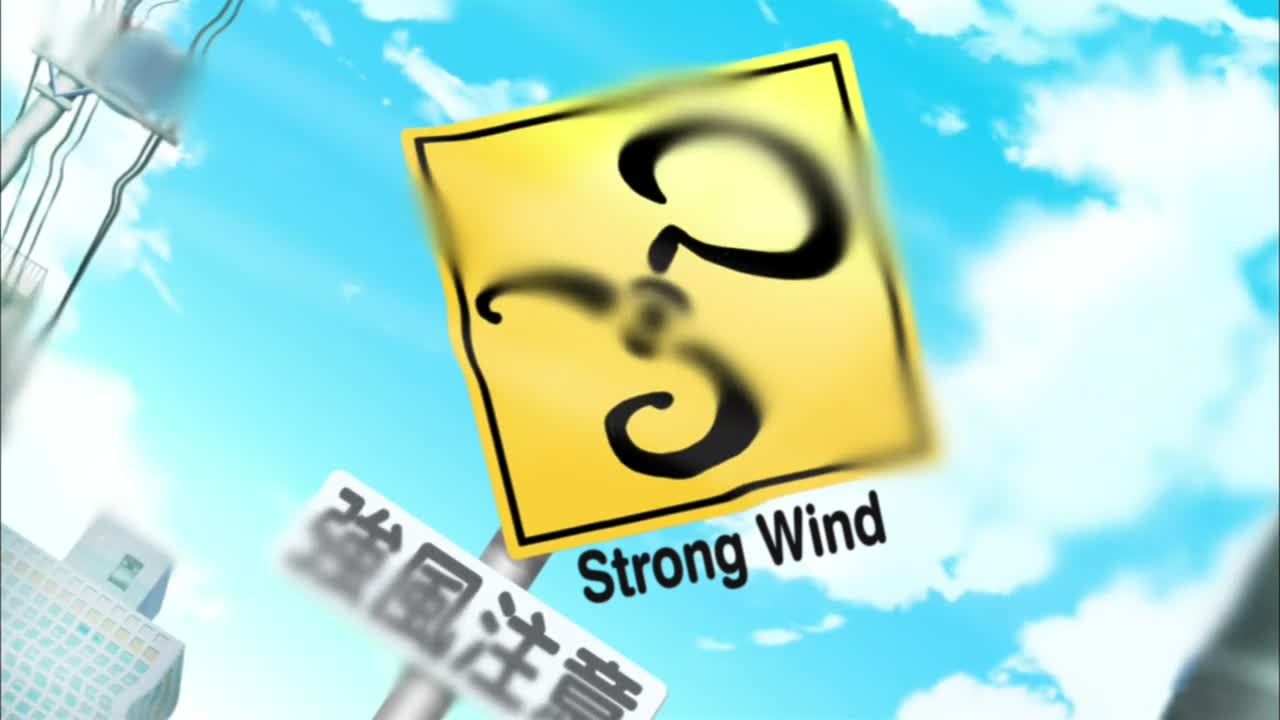
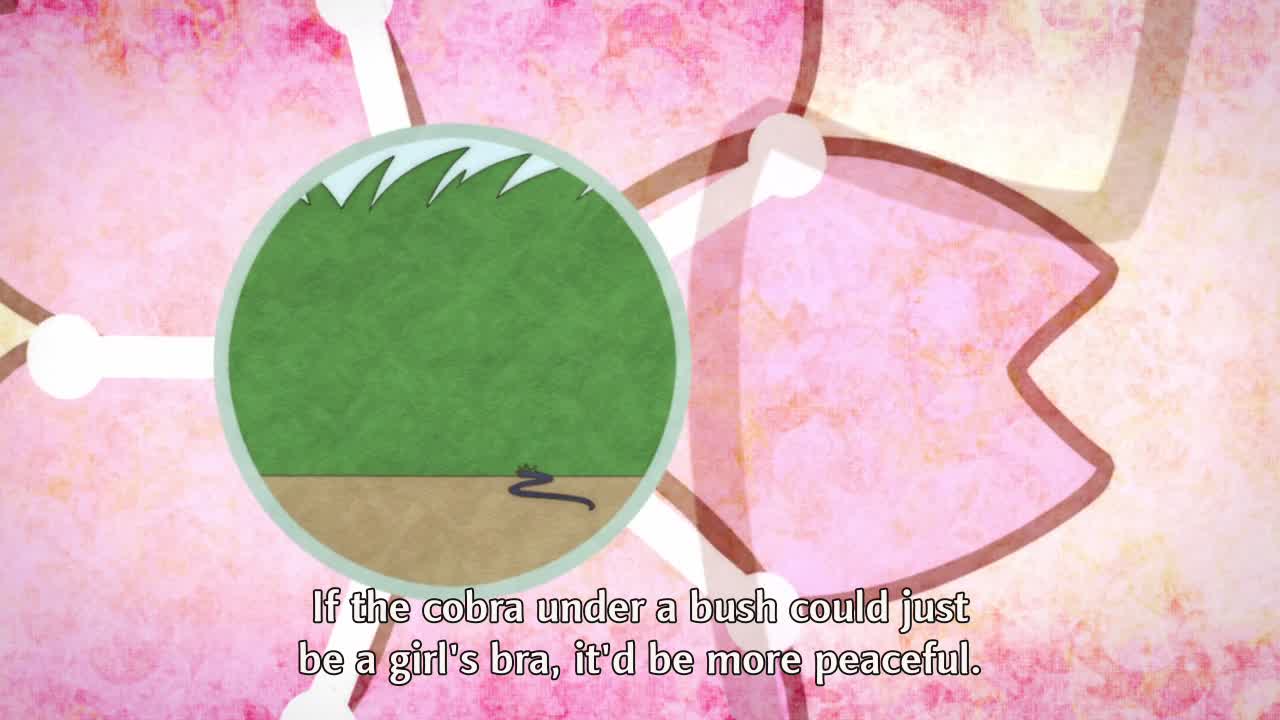
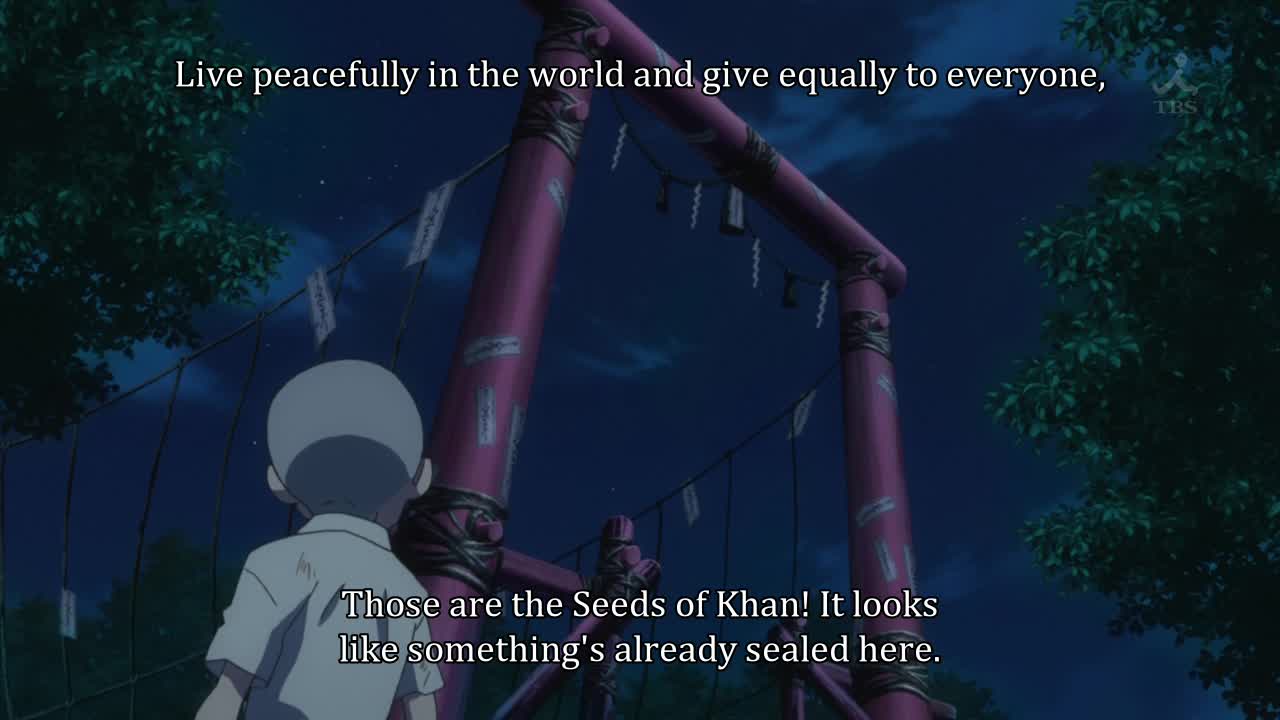
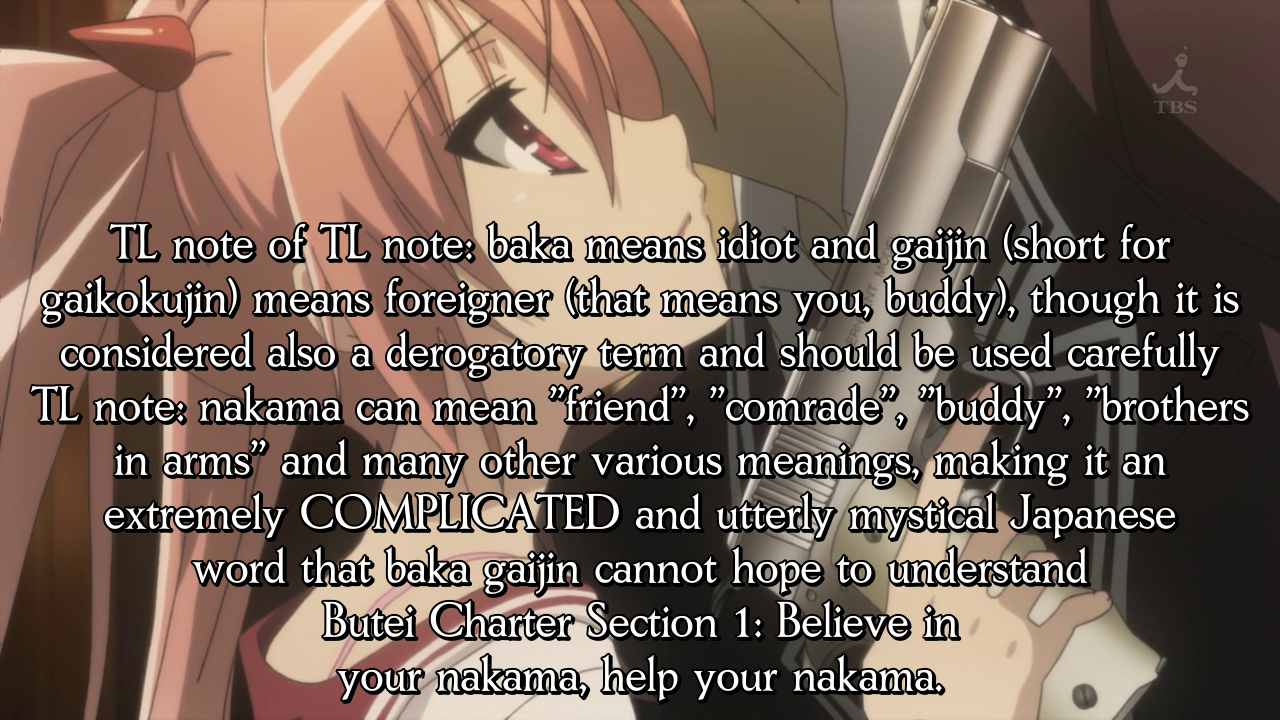
>opinions
>implying yours is worth anything
Why not try not hiding behind a fake name, brah?
I liked it, very useful for either begginers and “veteran” translators.
I think you failed include the basic competence in the English language in your system requirement.
Well, you “only” need to UNDERSTAND the Japanese, but you need to WRITE in English. The latter is much more demanding, and being a native English speaker doesn’t even give you half the qualification. Heck, editors are so under-appreciated precisely because people (falsely) believe they can write!
That’s true. I’m not a native English speaker, so I depend on my editors a lot.
We are talking about “translators” here, so why are you even mentioning the importance of an editor?
You just want to get some attention, don’t you? Well, you did succeed in fulfilling your objective.
Vale has written this guide to help translators, not to mention which position is more important in fansubbing. And let’s be honest, you can’t do a thing without the Japanese-English translated text. So the position of translator is the most important one without a doubt.
A translator only needs to be reasonably good in English. Editors are hired to deal with the rest of the issues.
An editor decorates the statue, but it’s the job of the translator to make that statue. You crawl and walk before you’re prepared to run for the first time in your life.
Simple as that.
The job of editors is important, and they should be appreciated for their work. But it’s also obvious why most people don’t give them the credit they deserve. Because a car (editor) can’t run without an engine (translator). An editor is completely unneeded if you don’t have the translated text. So someone needs to translate the Japanese audio in the first place.
Also, a person that understands Japanese really well can still start a fansubbing group even if they are not that good in English. On the other hand, you can’t even think about starting a fansubbing group if you don’t have a translator.
If you’re going to say something like ‘I’ll just use so-and-so group’s/company’s subtitles and make them sound better’, sorry but that’s nothing more than a really lame excuse.
You’re clearly relying on so-and-so group’s/company’s translator for your editing work, so the position of the translator again proves itself to be the most important and demanding one.
Just read this guide posted by Vale properly and you’ll understand how much a translator goes through before you get those scripts to edit. So which position is the most important and demanding one? Editors often tend to expect more appreciation than they deserve, and that’s why they feel so under-appreciated (that’s not the only reason though).
You mean translators are a bunch of illiterates or what when you say things like “Well, you “only” need to UNDERSTAND the Japanese, but you need to WRITE in English.”? Do you honestly think they can’t survive without editors? You think they can’t ‘write’ in English on their own?
Let me tell you, most of the Jap-Eng translators out there have reasonably good skill to ‘WRITE’ in English.
Huh? You were just trolling!? Oh man, just why did I take you seriously in the first place… tch.
What about http://www.nihongoresources.com/ ? I tend to depend on it for a lot of stuff. Ofc, I am no translator as I don’t really know japanese.
That’s pretty much just a frontend to wwwjdic, and there are browser plugins like Rikaichan that integrate wwwjdic already. I don’t even recall when I last used a dictionary other than ALC, to be honest.